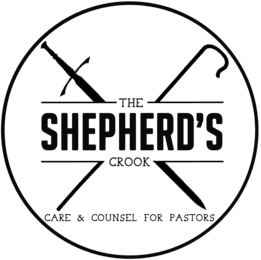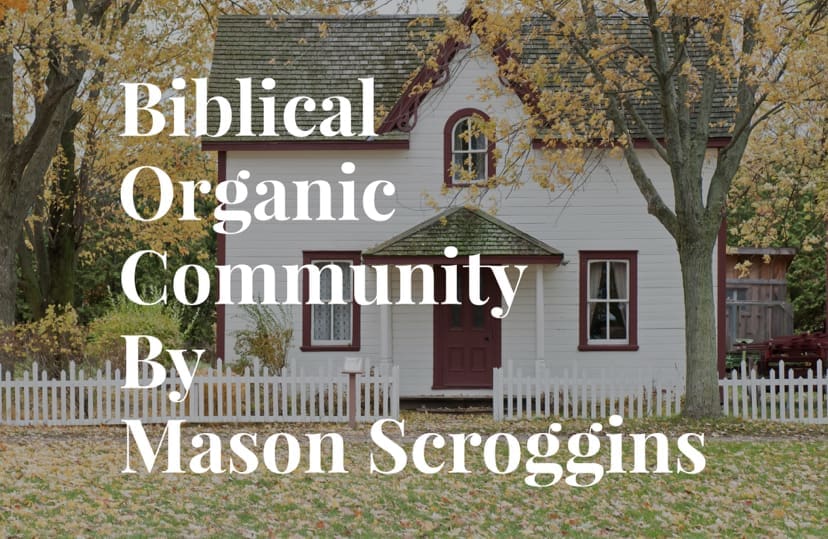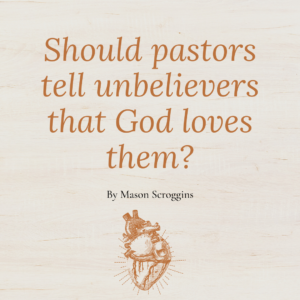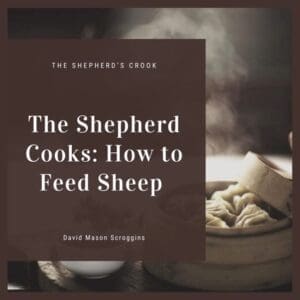So I exhort the elders among you, as a fellow elder and a witness of the sufferings of Christ, as well as a partaker in the glory that is going to be revealed: shepherd the flock of God that is among you, exercising oversight, not under compulsion, but willingly, as God would have you; not for shameful gain, but eagerly; not domineering over those in your charge, but being examples to the flock. (ESV) 1 Peter 5:1–3

Pastors are shepherds by nature. To be a faithful elder is to take this exhortation from Paul and remember it is not just an exhortation, but an ordination from God. We can not take these words lightly. As pastors, we can easily gloss over the “not under compulsion, but willingly” part. One area we may want to consider in light of this passage is biblical community.
Every pastor wants his church to have a healthy community. But what exactly is biblical community? After all, community is not even a biblical word. My working definition of biblical community is: A christo-centric body of people living together. That seems broad, I know. But, the moment you start adding things to the list you begin to tamper with the community. My natural inclination is to say a group of people close to each other working, worshiping, and living together. But life encompasses work and culminates in worship. So we must simply say living with Christ at the center.
Biblical community is easier said than done. Too often a pastor looks at a congregation and tries to “fix it”. He diagnoses the church as “dying” due to the underlying disease of “bad community”. The remedy? A standard dose of rigorous small group programs and activities. Programs fix everything, right? Now, I most certainly am not making a case against all small groups. The church of the platform for which I am writing has very healthy small groups. I have been a part of them and grown through them. The point for which I am laboring is that pastors must be mindful as under-shepherds. Don’t just add more programs and activities.
The Great Shepherd, Jesus Christ, has been so gracious in His calling of us. Our burden is lighter than the burden of the world. Our current culture calls us to work seven days, live at work, and worship our work. We rest when we die. It is the liturgy of death. Their hymns lament this very thing:
“Oh there ain’t no rest for the wicked
Money don’t grow on trees
I got bills to pay, I got mouths to feed
There ain’t nothing in this world for free
Oh no, I can’t slow down, I can’t hold back
Though you know, I wish I could
Oh no there ain’t no rest for the wicked
Until we close our eyes for good”
Utilitarianism rules our age. Programs of efficiency reign in the world. We don’t ask if something is fruitful we ask “will it work for now?”. There was a time when we valued the things we have and even maintained them. Now our whole economy is built upon use and disposal; leaving room for the next new thing. Have we believed a lie? Are our churches nothing more than a business machine? When something goes wrong with a business you start a committee and then launch a program to fix the problem. We should not run our churches this way. Let us not forget the God-breathed illustrations of the church never include businesses. In fact, that is a table-turning offense. The church is a body. It is comprised of the living (and the departed who will one day rise again). For this reason, we should take time as pastors to understand God’s living flock. The sheep in that scriptural analogy are not owned by us. Christ is their master and we have been entrusted to shepherd them under His shepherding. Thus we must look to His Word, not ourselves, not the flock, to understand the shepherding way.
The pitfalls of small groups relate to time. Time is not money. It is much more valuable than that. And when the church taxes its members for time it can be costly to them. I realize tax is a strong word to use for this, but if small groups are implemented flippantly without considering the flock it can be too much to ask. I also know small groups are voluntary and meant to be supplemental to the ordinary one day of worship on the Lord’s Day. Consider the fact of the Lord’s Day itself. Here we have a day that is a creation ordinance to rest and worship. God built this day into the created order for our rest. The all-wise Shepherd knows His sheep, he knows this world, he knows it needs rest. And he prescribes just the right amount.

So our pattern for the flock is to call them to worship every Lord’s Day. But, have we been instructed to add to that? The tenth chapter of Hebrews tells us not to forsake the assembling of believers, but how far does this go? Does this stretch to small groups or just the Lord’s Day? We have to consider that when the elders, the shepherds, implement small groups this is an assembling of believers. Where am I going with this you may ask. I know it sounds like I’m back-peddling into making a case for small groups. Rather, what I am actually doing is making a case for organic community. It’s not that we should not gather outside the commanded Lord’s Day. It is really just how we should gather outside the Lord’s Day.
My fear is not with having structure. The triune God is the God of order and formation. My concern is that formalized small groups are not ordained in scripture. Thus any time we, as under-shepherds, ordain this regimented order we must be careful not to exercise authority under compulsion, but willingly. We need to be wise and not guilt-trip church members into a community-building project that does not work well for their schedule. And I do mean “their schedule”. The pastor does not own the time of the members. He does not get to dictate the schedules of parishioners. The members have important work that God has called them to do in the other six days besides the Lord’s Day. The reformation recovered a proper view of vocation. Let us not neglect it. The household is an important sphere of government. The church and state should not infringe upon. God the Father does call His people to rest and worship corporately one day in seven, but this is not infringement. Why? because He is the one who gives us time! He set the world up this way. If we add indefinite rigorous programs to the church, my apprehension is that our goal of commu-ity can turn into a kind of commun-ism. We don’t want that.
The secular hymn tells us “There ain’t nothing in this world for free”. Except grace! Secularism is blind, deaf, and dumb to true grace and freedom. Free Grace is the gift of God to man. Free grace creates free people. It also creates free markets and free churches. Grace creates freedom. When countries see their citizens and economies in disarray there are generally two ways it responds. One way is the communist way. That way says if they won’t order and unite themselves we will take the initiative and do it for them. It is a prefabricated and compulsory approach. The other is the free-market perspective. When a government recognizes that it does not own people, but unites already free people, it gives them the option of self-government. This purely democratic approach has its downfalls as well. Lethargy can creep in and the people become too individualized. But this is why God has ordained different spheres of authority. One of those being the Church. Each sphere encourages or stirs up the other, but does not infringe. Pastors are called to be “examples to the flock” and in this way, he will “stir up one another to love and good works”.
Remember our passage from Hebrews:
And let us consider how to stir up one another to love and good works, not neglecting to meet together, as is the habit of some, but encouraging one another, and all the more as you see the Day drawing near. (ESV) Hebrews 10:24–25
Now, let me turn our attention to the word hospitality. One of the qualifications of elders Paul sets forth in 1 Timothy is “hospitality”. What I would like to submit to you is that a pastor leads the way in biblical community by being hospitable in his church. A pastor is to make time for those within his flock. It means not waiting for the one straying sheep to come to the small group, but going after that wanderer by bringing him into his home. Deep lasting relationships happen around a dinner table. This can occasionally happen at small groups too, but the intimacy and warmth that an open home brings is irreplaceable. Pastors can model this kind of hospitality of life to the flock. They should be working towards building a culture of organic community that happens on its own. Practically this might look messy. But what fruitful task doesn’t look messy at first?

Pastors, I encourage you to build community not under compulsion, but willingly, as God would have you; not for shameful gain, but eagerly; not domineering over those in your charge, but being examples to the flock in hospitality. Make your home open to your church and encourage your church members to do the same. If you do decide to go to the organized small group route make sure it is something that is good for the church. And if you do implement small groups don’t give in to the temptation to make first-rate members out of attenders and second-rate members out of those who can’t or don’t want to join. Our ultimate goal should be a natural community that doesn’t have to be told to meet together. In other words, let small groups be a temporary stirring up if you do decide to do them. Each church is different, but once this kind of free hospitality becomes regular it breeds a free organic culture of biblical community. Biblical community should not be a one-season harvest. It is a lasting fruitful endeavor. It might take time, but would you rather grow a fruit tree or plant a row of corn?
Mason Scroggins is married to Breanna. They have two daughters, Anora and Evangeline, and a son on the way. They live in Evansville Indiana and Mason serves as a Ruling Elder at Providence Church (PCA).




